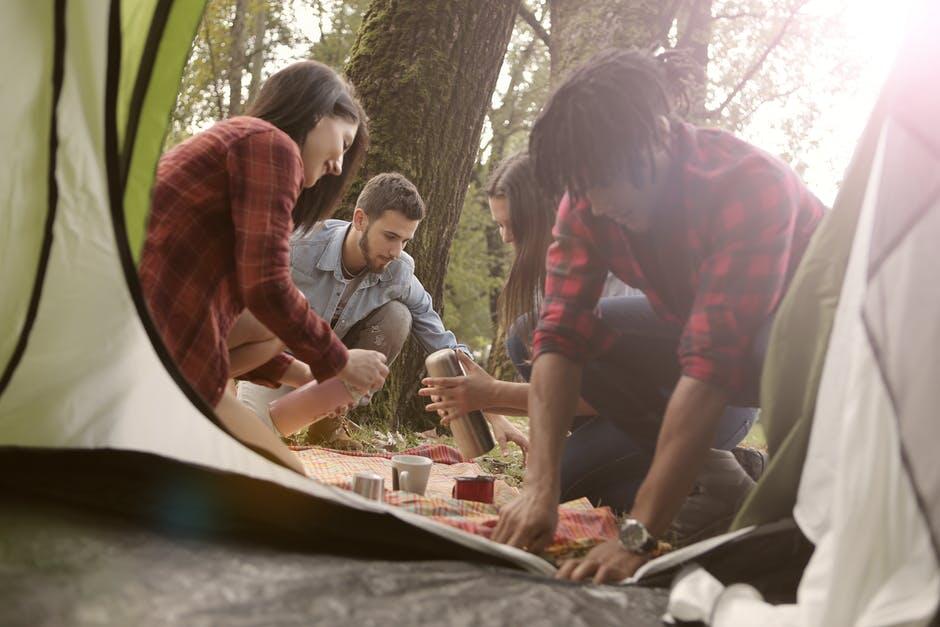Camp activities are not just fun; they have the power to change lives. Being outdoors with friends helps young people learn new skills. They face challenges that build their character and leadership.
Through playful learning, youth discover their strengths. Camp experiences create lasting memories and friendships. It’s a journey of growth and discovery for every participant.
In this blog, we will discuss how camp activities build leadership skills in youth. Read more!
Team-Building Games That Teach Collaboration
Team-building games are at the heart of many camp activities. These games encourage children to work together toward a common goal. When they succeed as a group, they build trust and see the value of cooperation.
Children learn to listen carefully and share ideas. To complete each challenge, they must communicate and support one another. Through this, they develop social bonds and teamwork skills.
These games show children how teamwork leads to success. Each player’s role matters, and together they reach the finish line. This early experience helps form strong leadership traits in young minds.
Encouraging Decision-Making in Real-Time Scenarios
Camp activities offer real-time situations that help children practice decision-making. They are often required to choose a direction or take action without delay. These moments teach them how choices shape outcomes.
By weighing options in real scenarios, campers learn to think clearly under pressure. Their decisions affect the group, which builds a sense of responsibility. These lessons carry over into daily life.
When campers make choices and see the results, they grow more independent. They learn to own their actions and think ahead. This skill is key in shaping confident, future-ready leaders.
Mentorship Roles That Shape Future Leaders
Mentorship is a powerful way to develop leadership. At camp, older children often guide younger ones through new tasks. This experience builds responsibility and teaches how to lead with patience.
Younger campers feel supported when a peer helps them succeed. Older campers gain a deeper understanding of leadership by offering direction. This two-way relationship supports learning and respect.
Mentorship helps children grow into leaders who lead by example. They learn that leadership is about helping others. These early roles often shape their identity in lasting ways.
Group Projects That Strengthen Responsibility and Initiative
Campers take part in group projects that require planning and teamwork. These tasks build responsibility as each camper plays a vital role. Success depends on everyone doing their part.
In group settings, campers learn how to take initiative. They step up, offer ideas, and help manage the task. This builds confidence and the ability to lead without being asked.
Completing group projects also teaches accountability. Campers see how their efforts affect others and adjust their actions. These experiences prepare them to lead in both structured and informal settings.
Fostering Communication Through Interactive Play
Interactive play is a fun and effective way to build communication. Through games and challenges, campers practice speaking clearly and listening to others. These moments teach them how to express ideas with confidence.
Campers work together in fun situations where clear communication is key. Whether giving directions or solving a task, they learn to be understood. This prepares them for real-world group settings.
As campers improve their communication, they build better relationships. They become more open, respectful, and ready to lead. These habits form a strong base for future leadership success.
Conflict Resolution Exercises That Promote Maturity
Conflict resolution exercises are vital in fostering maturity among youth. These exercises allow campers to practice managing disagreements positively. Learning to resolve conflicts helps them grow as responsible individuals.
Campers engage in scenarios where disagreements arise. With guidance, they explore how to address issues respectfully. This responsibility can prepare them for future situations in life.
Participation in these exercises can help youth develop essential skills. Camp counselor jobs often emphasize the importance of resolving conflicts. When young people face challenges and learn to navigate them, they grow more mature.
Empowering Youth with Goal-Setting Workshops
Goal-setting workshops teach children to plan for their future. Campers learn to set clear, achievable goals and stay focused. This practice helps them stay motivated and driven.
In these workshops, campers talk about dreams and the steps to reach them. They get support from leaders who help guide their plans. These sessions turn ideas into action.
Setting personal goals builds confidence and structure. Campers leave with a sense of direction and pride in their growth. These skills support both academic and personal success later in life.
Leadership Rotations in Cabin and Activity Roles
Camps often rotate leadership roles among campers. From cabin cleanup lead to group activity helper, each role teaches something new. This system gives every child a chance to lead.
Through these rotations, campers gain experience in many leadership styles. They learn to guide, assist, and support their peers. These different roles also teach adaptability and respect.
Changing responsibilities shows that leadership is flexible. Campers understand they can lead in quiet or bold ways. This knowledge gives them the tools to step up when needed.
Self-Reflection Sessions That Deepen Self-Awareness
Self-reflection is a key part of growing as a leader. Campers take time to think about their choices and actions. These sessions help them understand what they did well and what they can improve.
In quiet group or personal discussions, campers talk about their feelings. They learn how emotions affect behavior and decision-making. This helps them gain control and insight.
Over time, reflection helps build confidence and honesty. Campers begin to see who they are and where they’re going. This awareness leads to stronger, more thoughtful leaders.
Why Camp Activities Build Tomorrow’s Leaders
Camp activities shape strong leaders through teamwork, decision-making, and real-life challenges. These moments help young people find confidence, build trust, and develop key life skills. Each activity encourages growth that lasts well beyond camp.
From games to reflection, every part of camp supports leadership development. Camp activities provide a path for learning, connection, and personal strength. Start exploring programs that help young people lead with purpose.
Would you like to explore more informative articles such as this one? Browse around the rest of our blog to see what interests you.






